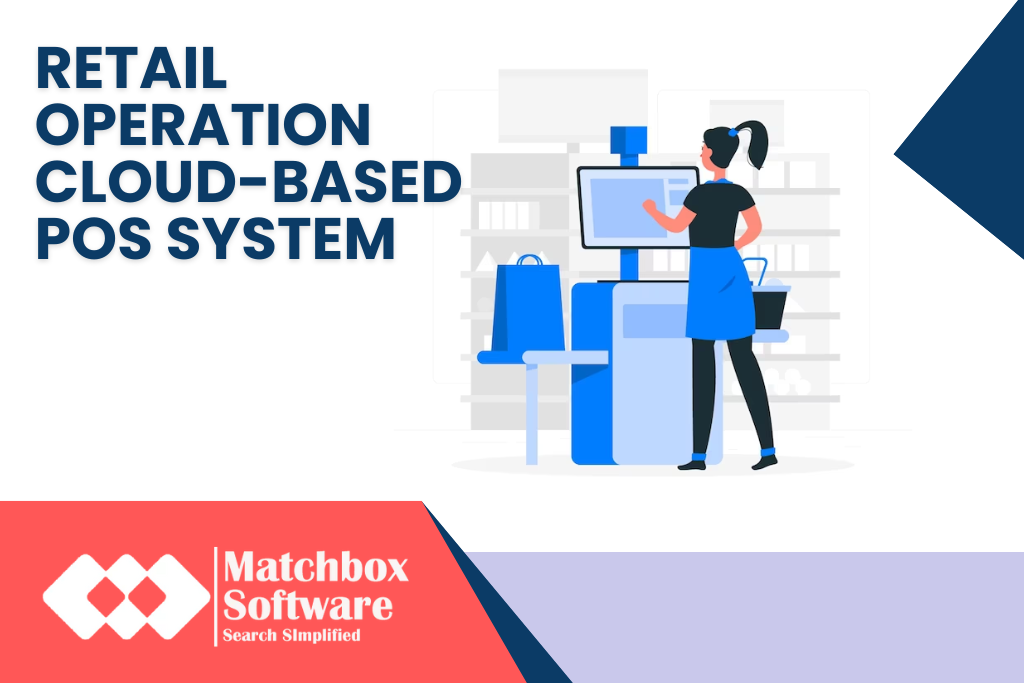Transforming Retail Operations with Cloud-Based POS Systems

In the dynamic and highly competitive retail landscape, Businesses are constantly looking for innovative solutions to improve customer experiences and streamline operational efficiency. The seamless integration of Cloud-Based Point of Sale (POS) systems with robust Project Management tools is one of the pivotal advancements reshaping the industry. We’ll look at how the convergence of these technologies is causing a paradigm shift in retail operations in this blog post.
What is Cloud Based POS System?
A Cloud-Based Point of Sale (POS) system, compared to old traditional on-premise POS systems, is a type of retail management solution that operates in a cloud-based environmen while in traditional on premise POS systems rely on servers and infrastructures which is more costly and difficult to manage. Data and processes in a cloud-based POS system are hosted on remote servers and accessed via the internet from all over the world at any point of time. This modern approach has several advantages for retail businesses.
The Power of Cloud-Based POS Systems
1. Flexibility and Accessibility:
Cloud-based point-of-sale systems provide unrivalled flexibility, allowing retailers to access real-time sales data, inventory information, and customer insights from any location with an internet connection. This adaptability is especially useful for businesses with multiple locations or those pursuing omnichannel strategies.
2. Cost Effectiveness:
Traditional POS systems frequently require large upfront investments as well as ongoing maintenance costs. Cloud-based POS systems, on the other hand, work on a subscription basis, eliminating the need for costly hardware and lowering IT costs. This efficiency enables retailers to more strategically allocate resources.
3. Real-Time Updates:
Cloud-based POS systems provide real-time updates, ensuring that businesses have the latest and most up-to-date data on sales, customer preferences and inventory levels. Because of flexibility in Cloud Based POS, retailers can make data-driven decisions quickly, adapting to market trends and customer demands in real time.
Enhancing Retail Efficiency with Electronic Point of Sale Systems
1. Seamless Transactions:
By digitising and automating the sales process, an electronic Point of Sale (ePOS) system streamlines transactions. This not only speeds up the checkout process, but it also reduces errors, improving the overall customer experience.
2. Inventory Management:
Retailers can manage inventory more efficiently with ePOS systems that are cloud-connected. Automatic stock level updates and alerts prevent overstock or stockouts, maximising inventory turnover and lowering carrying costs.
3. Customer Engagement:
The customised nature is essential in the retail industry. ePOS systems enable retailers to tailor marketing strategies and promotions by tracking customer preferences and purchase history. Customer loyalty and repeat business are increased as a result of this personalised approach.
Seamless Collaboration with Project Management Tools
1. Centralised Communication:
Integrating project management tools into retail operations promotes continuous communication among team members, ensuring that everyone is on the same page. This is especially important for companies with multiple locations or remote teams.
2. Task Tracking and Accountability:
Project management software assists in task organisation and progress tracking. Assigning responsibilities, setting deadlines, and tracking milestones becomes more efficient, encouraging accountability and preventing operational bottlenecks.
3. Streamlined Implementation:
Project management tools provide a structured framework for implementing new technologies or processes. To ensure a smooth transition, retailers can create detailed project plans, allocate resources effectively, and monitor the implementation process.
Conclusion: Optimizing Operations for Success
Ultimately, the integration of Cloud-Based POS systems, electronic Point of Sale (ePOS) systems, and Project Management tools is transforming retail operations. Businesses that adopt these technologies, nowadays gain a competitive advantage by increasing cost-efficiency, flexibility, and collaboration.
As the retail landscape evolves, staying ahead of the curve is way more important. Investing in modern POS solutions and project management tools allows you to thrive in a fast-paced, customer-centric market.

